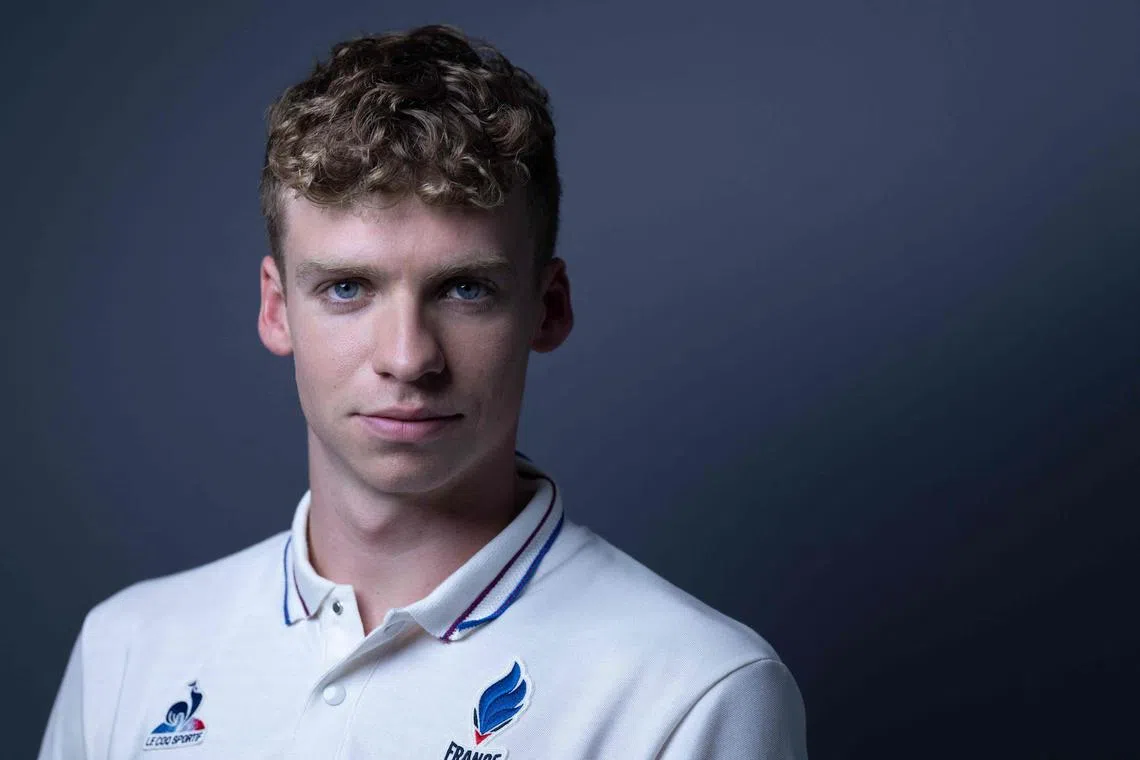Summoning golden Olympic memories, Paris parties like it’s still 2024
The Games provided 15 days of distraction last summer; however, athletes and grassroots sports organisations in France lament the lack of a more tangible ‘legacy’
[PARIS] Parisians had such unexpected fun at their Olympics last summer, that they are holding a public anniversary celebration to recapture the party mood, but not everyone is quite as enthusiastic.
The Olympic rings will be projected on the Eiffel Tower and there will be a giant Olympic karaoke in front of the town hall on July 26.
However, preceding that party, the glowing cauldron balloon – “a symbol of the popular enthusiasm for these Olympic Games”, according to France’s National Olympic Committee – returns on Saturday (Jun 21).
It will float once again above the Tuileries Garden, with French President Emmanuel Macron in attendance, to conjure golden memories, even for those who were not there.
“There are many Parisians who fled Paris last year and who kicked themselves,” said Matthieu Gobbi of Aerophile, the company responsible for the balloon.
Yet, athletes and grassroots sports organisations in France lament the lack of a more tangible “legacy”.
Navigate Asia in
a new global order
Get the insights delivered to your inbox.
For those who were there, and the five billion the International Olympic Committee claims watched around the world, the Games provided 15 days of candy-coloured distraction from wars, divisive elections and global inflation.
The sport was also spectacular, illuminated by the redemption of American gymnast Simone Biles, a likely final Roland-Garros triumph for the then 37-year-old tennis star Novak Djokovic, and the swimming heroics of French golden boy Leon Marchand.

An unusually high proportion of the Olympics was held in the the middle of the city, and that posed a challenge.
SEE ALSO
There were fears of terrorist attacks, that public transport would not cope and the Seine would be too polluted for triathletes and long-distance swimmers to compete.
Paris still pulled it off, enhancing its image, not least in France, as the world’s leading tourist destination.
“We will see who can repeat a Games like this,” said Macron.
‘Joy, unity, pride’
This summer, Parisians will be able to swim at three venues along the Seine.
The Tour de France, rerouted to avoid the capital last year, returns for its traditional finish on the Champs-Elysees at the end of a stage that covers many of the same streets where 500,000 spectators watched the Olympic road races.
That stage will be on July 27, a year and a day after the Paris Games opened with an epic and grandiose ceremony, put on by a cast of 20,000 artists and staff, along the Seine.
Celine Dion sang from the Eiffel Tower while the athletes sailed down the river in the pouring rain.
“This moment is a memory we share. It’s not so common these days,” said Thomas Jolly, the artistic director for the opening and closing ceremonies. “Having everyone watching the same thing at the same time surely creates a bond!”
The ceremony left a lasting mark, he said, “of joy, unity, pride”.
The Games themselves even made a profit, a surplus of 76 million euros (S$112.5 million).That figure does not yet include broader public spending, particularly on infrastructure, and it is here that some in France feel the Olympics has left a slightly bitter taste.
For Olympic organisers, the word “legacy” – both tangible and intangible – helps legitimise hosting an event that many countries no longer want.
“We are trying to give the Olympics a role they weren’t made for,” said Mickael Attali, a sports historian at Rennes II University.
“Good memories” and “a good image of France” remain.
“Materially, there are still some things left in Seine-Saint-Denis,” said Attali, referring to the poorest departement in mainland France where the Olympic Aquatic Centre, opposite the Stade de France, has just opened to the public.
Macron had promised the Olympics would help turn France into a sporting nation.
The number of people registered to sports clubs has increased by 5 per cent, but thousands of enthusiastic children were turned away last autumn because of a lack of space.
After the Games ended, national and local sports budgets were cut. Sports officials say that infrastructure projects have been halted and expenditure on equipment slashed.
Some French athletes were abandoned by commercial sponsors.
“All the companies that had set up sponsorship for the Olympics have left,” said a specialist in sports marketing who did not wish to be named.
Even some of France’s Olympic stars feel the lustre has faded fast.
“We should not have said there would be a legacy,” said Olympic fencing champion Manon Apithy-Brunet.
Decoding Asia newsletter: your guide to navigating Asia in a new global order. Sign up here to get Decoding Asia newsletter. Delivered to your inbox. Free.
Copyright SPH Media. All rights reserved.




